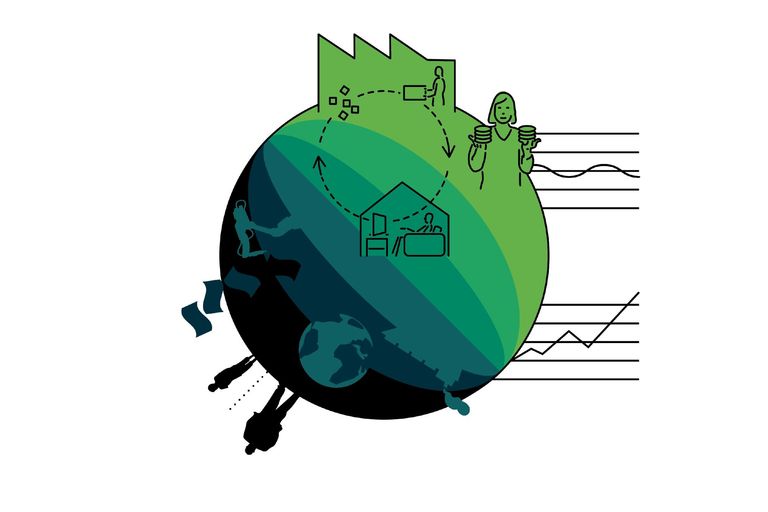Economic and Financial Systems for Well-being

Using six priority themes, the "White Paper on Sustainability Research" outlines Switzerland's most urgent research needs in order to meet the UN Sustainable Development Goals.
Our current economic system tolerates or even encourages highly unsustainable practices. Finance is increasingly disconnected from the real economy and the huge volumes of assets traded in uncontrolled, speculative and manipulated financial markets have contributed to economic and financial instability. The costs of resulting crises, overconsumption, pollution, resource depletion, and social inequalities are far too high, both for present and future generations. Our current economic paradigm must be transformed into one that serves sustainable development.
Key unresolved questions
Read White Paper on Sustainability Research:
Video: Research on alternative forms of economic activity (economic and financial systems that serve sustainable development).
Our current economic system tolerates or supports practices that are highly unsustainable. Unrestrained trading in financial markets has contributed to economic and financial instability. This has resulted in the problems of over-consumption, environmental pollution, resource shortage and social inequalities. Our current economic paradigm must therefore be reshaped to serve sustainable development. Dr. Stephanie Moser and Dr. Christoph Bader from the Centre for Development and Environment (CDE) at the University of Bern are working on a research project in which they are investigating various projects and companies that are seeking new and more sustainable economic paths. One such company is the «Energiewendegenossenschaft», which installs solar systems "for free" in the canton of Bern. It provides a professional with whom private individuals and other do-it-yourselfers can build their own solar power systems.
This video was created by students of the Multimedia Production course in the Corporate Communications module at the Bern University of Applied Sciences. The multimedia projects were created as part of a collaboration between WWF Switzerland and the three Multimedia Production classes at the Universities of Applied Sciences in Graubünden and Bern.
